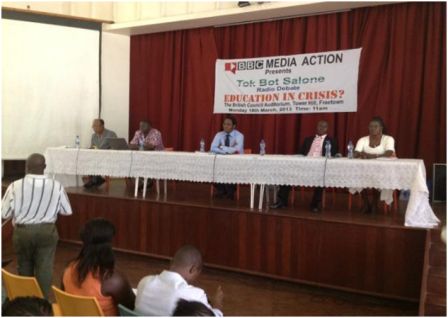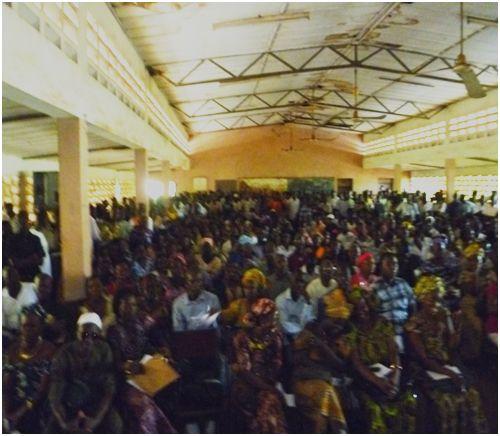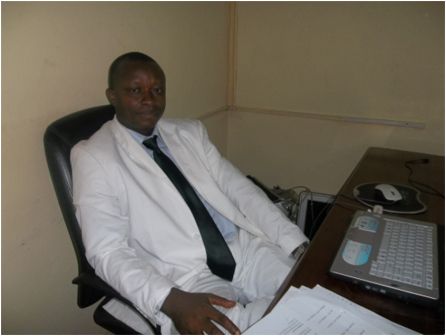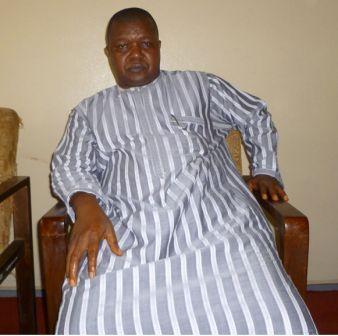Education in Crisis? BBC Media Action Presents “Tok Bot SaLone” Radio Debate
Within the last several years, the decline in our standard of education has been blamed, exclusively, on the Ministry of Education because this is the government entity that handles our educational affairs and therefore it is always the first entity that people cast the blame on whenever anything negative is going on in any part of our educational system – be it Teacher or Lecturer strikes; high College/University fees; inadequate learning materials; the poor state of our Colleges and Universities and a host of other things. This BBC Media Action Program, “Education in Crisis – Tok Bot SaLone Radio Debate” is specifically organized at the British Council to create an environment where stakeholders could have an opportunity to address some or all of the factors responsible for bringing our education system to near crisis. Stakeholders were drawn from colleges; Universities; the Ministry of Education; Civil Society groups; Schools; Teachers; Lecturers employers etc… (Photo: Panelists: Nelson Williams; Joseph Kobina; Ed Kargbo (Presenter); Ibrahim Mansaray; Mrs. Taylor-Morgan)
The main theme of the debate was to sound the opinion of participants as to whether or not our education is in crisis. Speaker after speaker gave their perspective on what is actually crumbling our education system. The first contributor, Mr. I.L.M Sesay who is the Executive Secretary for the Science and Technology Council at the Ministry of Education set the tone upon which all other speakers elaborated. He stated that the decline in our education system in this country hinges upon four main factors and they would be the Parents; the Students; the Teachers/Lecturers and the Ministry of Education on behalf of the government. All other speakers agreed and the common agreement was that the Higher Institutions of Learning; namely Fourah-Bay; Njala; Milton Margia; and the other colleges, accept students who are not well grounded; and those students, having realized that the only way out is to bribe their way through the system, would do so and then come out as graduates almost empty of knowledge as they went in. The parents, who, back in the days, used to be the watchdogs of their children’s performance by prevailing on them to study at home, would now pay little or no attention to these children and would even help them bribe their way through Colleges or Universities all in the name of having a child who has graduated from the said institutions. The Teachers and Lecturers, most of whom did not acquire the rudiments of proper teaching skills and training, would accept bribes from students and pupils in a manner that enhances mass production of graduates who are not ripe enough to face the educational challenges of our time.
Some members of the audience blamed the Ministry of Education; especially the Inspectorate division for not enhancing proper inspection of our schools and proper assessment on the performance of our Teachers. The Director of Education, Inspectorate, Mr. Mohamed Sillah Sesay, was quick to mention that he inherited a broken system that lacked over 125 Inspectors and Deputy Directors combined. He added that most of the Inspectors and Deputy Directors were merely HTC and TC graduates recruited after the war and were dubbed as “Teacher-attached” Inspectors at the Ministry of Education with very limited knowledge and training on proper Inspection mechanisms. He however commended the Minister of Education and the Inspectorate office for recruiting over 70 new Inspectors and Deputy Directors to beef up the alarmingly low number of personnel at his office. In his contribution, Mr. Nelson Williams, who is the Executive Secretary of the Basic Education Commission, pointed out a number of successes that the Ministry of Education has scored over the years; citing statistics that show an increase in the number of students who passed the Basic Education Certificate Examination. He also stated that the Ministry, under the leadership of Dr. Minkailu Bah, is working assiduously to erect more structures in schools around the country to accommodate the ever increasing number of our school-going population. He described the recent strike action by Lecturers as unprofessional because Lecturers have had the highest increase in salaries and the highest amount of subvention to their institutions than any other time in the history of our education system. One of the participants, Mr. Mohamed Swaray, a private consultant, blamed the decline in our education system on parents, Teachers, the Ministry and the students/pupils and cited a striking example that while parents are struggling to raise the money to pay the tuition fee and purchase other school materials, the students are busy ostensibly flashing around expensive phones and other communication gadgets that their parents and Teachers could not afford to have. A culture of non-supervision and low parental oversight has permeated the homes and schools of our country, he added. Mr. Unisa Kamara of the University of Makeni (UNIMaK) describes our education system as a “National Emergency” beyond a crisis and blamed everything on the Inspectorate Office at the Ministry of Education; low salaries; inattentive parents; irresponsible school children and a negligent society. Mr. Michael Sorie Dumbuya, a Teacher in Kenema, blamed the Institutions of higher learning for the pervasive corruption and the culture of little or no accountability and transparency and attributed such to the rapid decline in our education system. Mr. Ibrahim Mansaray, President of the National Union of students; himself a Law student at Fourah-Bay College, was quick to tow the line and blamed the University administration for extorting money from students for things that they have not and perhaps will never provide for the said students. Ms. Rugiatu Haja Marah, a Teacher at vine Memorial Secondary School stated that the SLPP party decided to open a Secondary School anywhere there was a Primary School around the country; but never really equipped those schools with adequate number of Teachers and adequate resources to help those schools function adequately. She further stated that our Primary education is broken and it is having a ripple effect on all forms of learning beyond that level. She thanked UNICEF for focusing its attention on enhancing primary education around the country. Mr. Joseph Kobina, a Civil Society Activist of the program “Education for All”, cited the Dakar Declaration in which participating countries pledged to abide by certain norms that will eventually boost the education system in their respective countries but never really implemented most of the recommendations. He urged the Ministry of Education and the government to revisit the National Education Policy; the Education Sector Plan; and the Report on the Gbamanja Commission so as to inject positive blood into our ailing education system.
When asked to put forward suggestions and recommendations on how to get our education out of crisis, the following came out:
Chernor Alpha Bah recommended an upgrade on teaching standards and more research by University Professors to bring forth new ideas as to how to enhance learning at all levels. Haja Fatmata Jalloh suggested more government support to Teachers to discourage bribing of Inspectors by heads of low performing schools. She also recommended punitive measures for poor performing Teachers and Lecturers. Mr. Saidu Aviv Charm suggested bringing back incentives for Teachers in remote areas of the country; and providing housing for them. Parent Teachers Associations be strengthened in order to help parents understand their role in the scholastic life of their children. Several other good suggestions were brought forward but the one main thing that every participant went home with was that the decline in our education system cannot be blamed on any one sector. It is a holistic problem – the remedy of which requires a holistic approach by all stakeholders. The Minister of Education pledges to look into the recommendations and suggestions for improvement and would also like to thank all participants in this debate; and all Teachers and Lecturers across the country as he reaffirms his commitment to pursuing a lasting solution to our ailing education system in the country.
Brima Michael Turay, PRO – Ministry of Education
Stay with Sierra Express Media, for your trusted place in news!
© 2013, https:. All rights reserved.








EducateFirst Ltd⋆✰☆
/
Education in Crisis? BBC Media Action Presents “Tok Bot SaLone … http://t.co/tVk8KYPvk2
20th March 2013